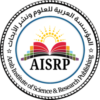تنمية سلسلة اللوز
Solidarity And Social Economy and the Question of Territorial Governance: The Case of the Almond Chain Development Program in the Province of Taourirt- East Region (Morocco)
Dr. Mohammed LAKHDARI*1, Dr. Mohamed AZIACH1, Dr. Jaouad El-BAZOUI2
1 Faculty of Letters and Human Sciences, Oujda | Mohammed First University | Morocco
2 Multidisciplinary Faculty | Taza | Sidi Mohamed Bno Abdilah University | Morocco
Abstract: The follower of the various interventions out by the actors in the province of Taourirt discovers the great interest that the solidarity and social economy enjoys, most of the projects specifically directed to alleviating unemployment and diversifying sources of income (the councils of the territorial communities, the national initiative for human development,
the green Morocco program, international cooperation…) based on the valorization and marketing of soil products, including the almond tree, adapted to the natural environment and local social know-how. However, the evaluation of the outcome of the almond chain development project in the province of Taourirt,
which was launched in 2011, still had weak results and did not live up to the aspirations of the local population, which considers diversifying their sources of income and providing job opportunities as the first building block to confront the vulnerability and poverty the suffer from.
The issue of poor governance of these interventions – the lack of keeping pace with these projects from processing to production, valuation, and marketing- affects the achievement of the established goals, and the sustainability of these projects collides with the constraints of the climate,
especially almonds, which involves farmer and gives priority to the constraints facing the population and the field, will result in positive economic, social and environmental impacts on the image of the Taourirt compared to previous years.
Keywords: almond chain development, actors’ interventions, territorial governance, spatial development.
الاقتصاد التضامني والاجتماعي وسؤال الحكامة الترابية: حالة برنامج تنمية سلسلة اللوز بإقليم تاوريرت-جهة الشرق (المغرب)
الدكتور / محمد لاخضري*1, الدكتور / محمد ازياش1, الدكتور / جواد البزوي2
1 كلية الآداب والعلوم الإنسانية وجدة | جامعة محمد الأول | المغرب
2 الكلية متعددة التخصصات تازة | جامعة سيدي محمد بن عبد الله | المغرب
المستخلص: إن المتتبع لمختلف التدخلات التي يقوم بها الفاعلون بإقليم تاوريرت -جهة الشرق- يستشف الاهتمام الكبير الذي يحظى به الاقتصاد التضامني والاجتماعي، فأغلب المشاريع الموجهة خصيصا للتخفيف من البطالة وتنويع مصادر الدخل (مجالس الجماعات الترابية، المبادرة الوطنية للتنمية البشرية،
برنامج المغرب الأخضر، التعاون الدولي…) ترتكز على تثمين وتسويق المنتوجات الترابية ومنها شجرة اللوز المتكيفة مع الوسط الطبيعي والدراية الاجتماعية المحلية. إلا أن تقييم حصيلة مشروع تنمية سلسلة اللوز بإقليم تاوريرت الذي انطلق سنة 2011 لا زالت نتائجه ضعيفة ولم يرق إلى مستوى تطلعات الساكنة المحلية،
التي تعتبر تنويع مصادر دخلهم وتوفير فرص الشغل اللبنة الأولى لمواجهة الهشاشة والفقر الذي يعانون منه.
تؤثر مسألة ضعف حكامة هذه التدخلات – نقص مواكبة هذه المشاريع من التجهيز إلى الإنتاج والتثمين والتسويق- على تحقيق الأهداف المسطرة، كما تصطدم استدامة هذه المشاريع بإكراهات المناخ وخاصة توالي سنوات الجفاف.
وبالمقابل إن برنامج تنمية سلاسل الإنتاج وخاصة اللوز والتي تشرك الفلاحين وتعطي أولوية للإكراهات التي تواجه الساكنة والمجال، سينتج عنها تأثيرات إيجابية اقتصادية واجتماعية وبيئية على صورة إقليم تاوريرت بالمقارنة مع السنوات الماضية.
الكلمات المفتاحية: تنمية سلسلة اللوز، تدخلات الفاعلين، الحكامة الترابية، التنمية المجالية.
